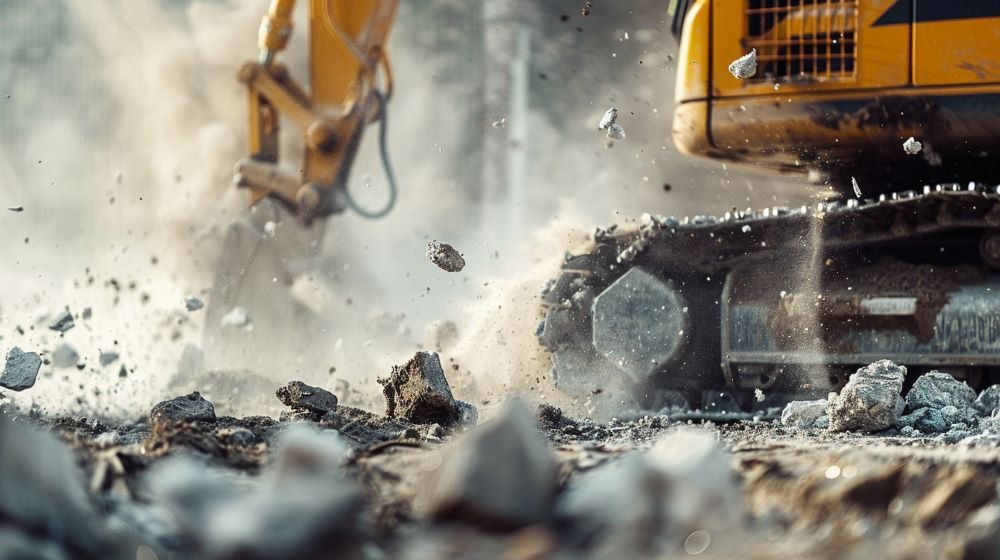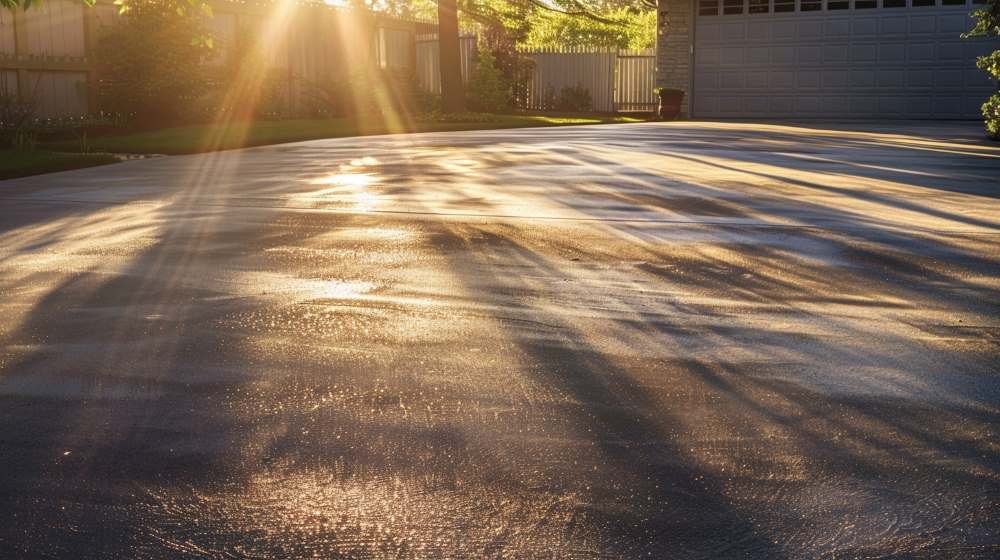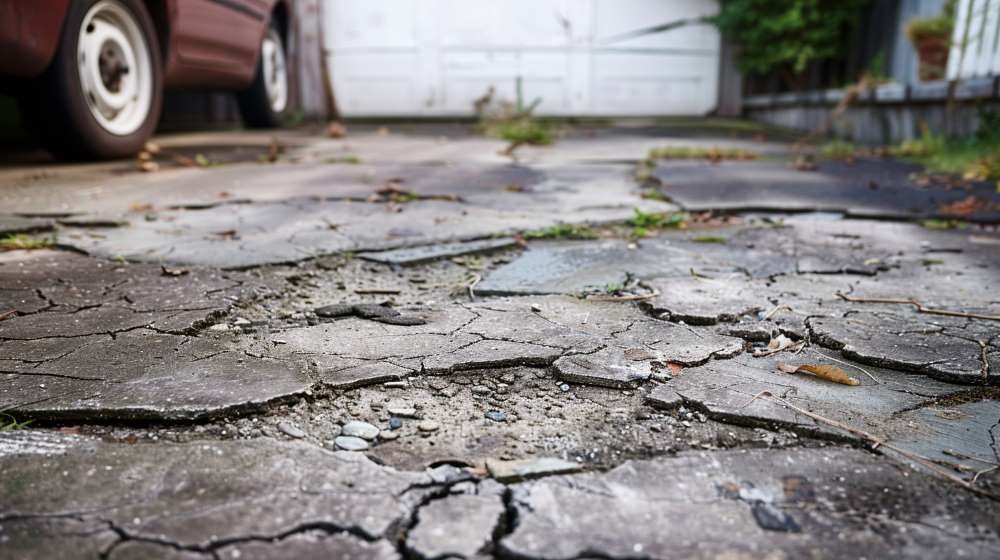Did you know that a poorly constructed concrete driveway can crack and deteriorate within just a few years? This is a concerning statistic, especially when considering the investment you put into your property.
So, how thick should a concrete driveway be in Australia to ensure longevity and durability? The answer depends on several factors, such as the type of traffic it will experience and the soil conditions in your area.
In this discussion, we will explore the recommended thickness for residential driveways, considerations for commercial or heavy-duty driveways, and provide some tips for ensuring a long-lasting concrete driveway. Stay tuned to discover the key to a durable and reliable driveway.
Factors Influencing Driveway Thickness
When determining the thickness of a concrete driveway in Australia, several factors come into play. These factors include the type of soil on which the driveway will be constructed, the expected load or weight that the driveway will bear, and the climate conditions in the specific region.
The type of soil is an important consideration because it affects the stability of the driveway. Different types of soil have different load-bearing capacities, so it’s crucial to choose the appropriate thickness to ensure that the driveway can withstand the weight of vehicles and any other objects that may be placed on it.
The expected load or weight that the driveway will bear is another significant factor. A residential driveway typically needs to support the weight of cars and small trucks, while a commercial driveway may need to bear heavier loads, such as delivery trucks or construction vehicles. The thickness of the concrete should be determined based on the maximum load that the driveway is expected to handle.
Climate conditions also play a role in determining the thickness of the concrete driveway. In regions with extreme temperature variations, such as hot summers and freezing winters, the concrete needs to be thick enough to withstand the expansion and contraction that occurs due to temperature changes.
Considering these factors, it’s essential to consult with a professional contractor who can assess the specific conditions and recommend the appropriate thickness for a concrete driveway in Australia.
Recommended Thickness for Residential Driveways
To determine the recommended thickness for a residential driveway in Australia, consider the specific load-bearing requirements and the climate conditions in your region. The thickness of a concrete driveway plays a crucial role in its durability and longevity. In general, residential driveways should have a minimum thickness of 100mm (4 inches). However, this thickness may need to be increased depending on factors such as the weight of vehicles that will be using the driveway and the type of soil on which it will be constructed.
If you expect heavy vehicles, such as trucks or SUVs, to frequently use your driveway, it’s advisable to increase the thickness to 125mm (5 inches) or even 150mm (6 inches). This will ensure that the driveway can withstand the additional weight and prevent cracking or sinking over time. Similarly, if you live in an area with clay or expansive soil, which tends to shift and expand with moisture changes, a thicker driveway may be necessary to provide stability and prevent damage.
Climate conditions also play a role in determining the recommended thickness for a residential driveway. If you live in a region that experiences extreme temperature variations or frequent freeze-thaw cycles, a thicker concrete layer can help prevent cracking and damage caused by the expansion and contraction of the concrete.
Considerations for Commercial or Heavy-Duty Driveways
Consider the specific requirements for commercial or heavy-duty driveways to ensure optimal thickness and durability. When it comes to these types of driveways, there are a few key factors to take into consideration:
- Traffic load: Commercial driveways often experience heavier traffic loads compared to residential driveways. Heavy vehicles such as delivery trucks or construction equipment can put significant stress on the surface. Therefore, it’s crucial to choose a concrete thickness that can withstand the weight and constant traffic.
- Subgrade stability: The stability of the subgrade is vital for the longevity of commercial driveways. A solid and well-compacted subbase provides a strong foundation for the concrete. It helps distribute the load more evenly and prevents settlement or cracking.
- Reinforcement: For heavy-duty driveways, reinforcing the concrete with steel bars or fibers can enhance its strength and durability. This reinforcement helps to limit cracking and increase the load-bearing capacity of the driveway.
Tips for Ensuring a Long-Lasting Concrete Driveway
For a long-lasting concrete driveway, it’s essential to prioritise proper installation and regular maintenance. By following a few simple tips, you can ensure that your driveway remains in good condition for years to come.
Firstly, make sure that the concrete is poured and cured correctly. This involves hiring a professional contractor who understands the importance of proper preparation, such as compacting the soil and installing a solid base. Additionally, ensure that the concrete is mixed to the proper consistency and is poured at the appropriate thickness.
Regular maintenance is also crucial for preserving the lifespan of your driveway. Keep the surface clean by regularly sweeping away debris and washing away any stains or spills. Avoid using harsh chemicals that can damage the concrete. Instead, opt for gentle cleaners specifically designed for concrete surfaces.
Sealing your concrete driveway is another important step to protect it from damage caused by weather and everyday wear and tear. Apply a high-quality sealer every few years to prevent water penetration, cracking, and staining.
Lastly, avoid placing heavy objects or vehicles on your driveway for extended periods. Excessive weight can cause the concrete to crack or sink over time.
Conclusion
In conclusion, just as a sturdy foundation is crucial for a building’s strength, the thickness of a concrete driveway in Australia determines its durability.
Like the roots of a mighty tree, a thick driveway withstands the test of time, weathering the storms of heavy vehicles and harsh climates.
So, remember to choose the right thickness for your driveway, for it’s the solid ground that supports your journey through life’s asphalted paths.








